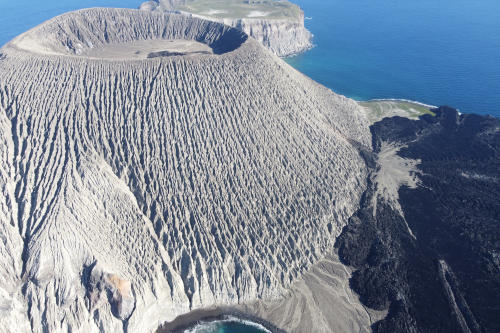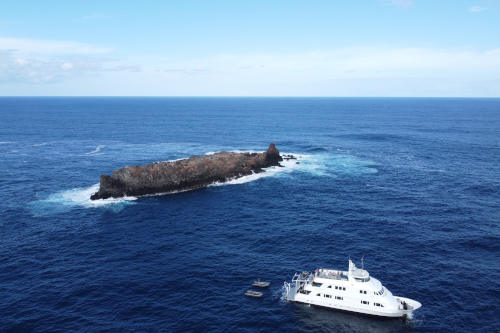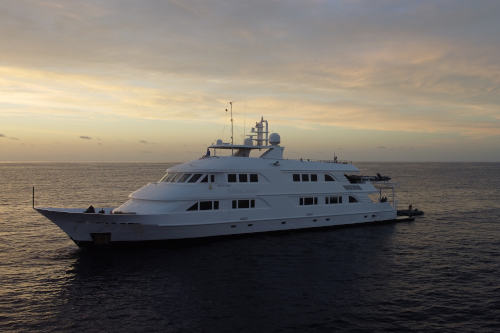A Divers Guide to the Socorro Islands
The Revillagigedo Archipelago is made up of four islands: Socorro, Roca Partida, San Benedicto, and Clarion. Due to the popularity of the largest island, the archipelago is often referred to as the Socorro Islands. All of the islands are volcanic. The islands were declared as a marine reserve and a Mexican national park in 2017. The waters typically reach a low of 68 F (21 C) and a high of 82 F (28 C), and the weather is typically warm and sunny.

Socorro Island rises abruptly from the sea to 1,050 meters (3,440 feet) in elevation at its summit. The island is the emerged summit of a massive, predominately submarine shield volcano. The island is part of the northern Mathematicians Ridge, a mid-ocean ridge that became largely inactive 3.5 million years ago when activity moved to the East Pacific Rise. All four islands along with the many seamounts on the ridge are post-abandonment alkaline volcanoes. Socorro Island is unusual in that it is the only dominantly silicic peralkaline volcanic island in the Pacific Ocean. It most recently erupted in late January-early February 1993, which was a submarine eruption off the coast from Punta Tosca. An earlier eruption was on May 21, 1951. Earlier eruptions probably occurred in 1905, 1896 and 1848. The island's surface is broken by furrows, small craters, and numerous ravines, and covered in lava domes, lava flows and cinder cones.

There is a naval station, established in 1957, with a population of 250 staff and families living in a village with a church. The village stands on the western side of Bahia Vargas Lozano, a small cove with a rocky beach, about 800 meters east of Cabo Regla, the southernmost point of the island. The station is served by a dock, a local helipad and Isla Socorro airport, located six kilometers to the north. There is a freshwater spring about 5 km northwest of Cabo Regla, at the shoreline of Ensenada Grayson. This is brackish and sometimes covered by the sea at high tide. In the 1950s, a small freshwater seep was known to exist some 45 meters (49 yards) inland at Bahia Lucio Gallardo Pavon, about 800 meters NW of the naval station.

The islands are located nearly 400 km (250 miles) from the Baja California peninsula. Due to the isolated location, the only way to visit Socorro is through liveaboard. Most visitors begin their trips by arriving at Los Cabos International Airport in Mexico. Then, divers travel 45 minutes to Cabo San Lucas where they take off on a liveaboard. It usually takes about a day for the liveaboard to arrive at the islands.
The diving season lasts from November to May as that is when the often-rough waters are at their calmest. However, even the calmer waters have strong currents, making this trip best for advanced divers.


Although the Socorro’s waters are not filled with the colorful reefs many divers look out for, the marine life more than makes up for it. Manta rays, dolphins, hammerhead sharks, tiger sharks, are just a few of the common sights in these waters. Humpback whales can even be seen on their migration path through the months of January and February, and the dolphins are known for coming into close contact with divers, most commonly from January to March.

When divers first arrive at the islands, they often begin their scuba adventure at El Fondeadero. This dive site is located in San Benedicto’s shallower waters where there are three pinnacles and sightings of lobster and eels. The famous sightings of humpback whales are east of Socorro island at the Cabo Pearce dive site. Abundant pelagic life can be seen at the isolated Roca Partida dive site. This site is over 80 miles from San Benedicto and has a pinnacle peaking up out of the water. This site is best suited for advanced divers and has over 100 feet of visibility.
When planning your next dive trip, make sure the Socorro Islands are at the top of your list. The close encounters with dolphins, sharks, and manta rays at this location are unmatched, and the humpback whale sightings are one of a kind.
